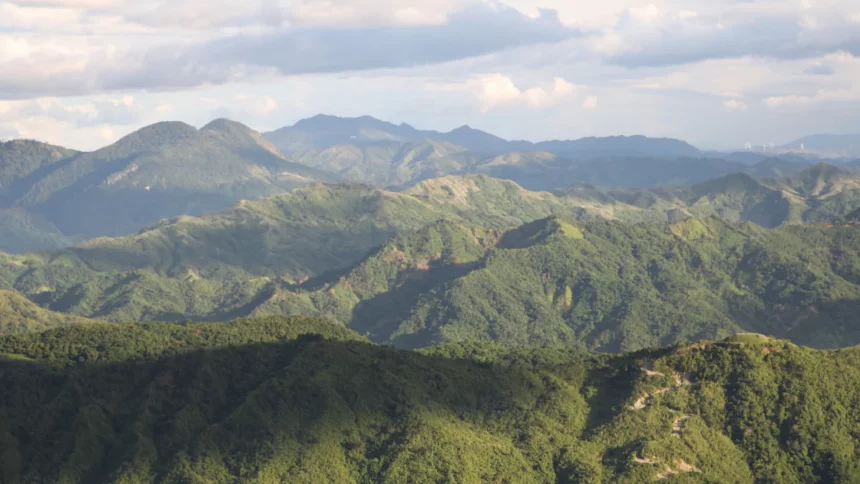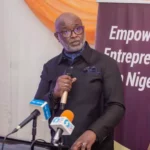QNET has called for accelerated action to tackle climate change impacts that are disproportionately affecting developing countries such as Ghana, even though they account for the lowest proportion of causal factors. The global e-commerce and direct selling leader made the call to mark the celebration of this year’s World Environment Day on the 5th of June.
50 years ago in Sweden, the World Environment Day came into being, when the United Nations Conference on the Human Environment took place. It was regarded as the first global environmental summit, it was there that the idea of a World Environment Day was formalized, with the first one held in 1973.
Since then, the annual event, which falls on 5 June, has helped both celebrate the planet and put a spotlight on the perils it is facing. Experts say it has also driven change, helping lead to landmark global treaties that cover everything from plastic pollution to food waste.
Much of Africa has already warmed by more than 1°C since 1901, with an increase in heatwaves and hot days. In the drought-prone sub-Saharan African countries, the number of undernourished people has increased by 45.6% since 2012 according to the Food and Agriculture Organization (FAO) of the United Nations.
The same body reported that a reduction in mean agricultural yield of 13% is projected in West and Central Africa, 11% in North Africa, and 8% in East and Southern Africa, under the worst-case climate change scenario.
On the economic front, The African Climate Policy Center projects that the Gross Domestic Product in the five African subregions would suffer a significant decrease as a result of a global temperature increase. For scenarios ranging from a 1°C to a 4°C increase in global temperatures relative to pre-industrial levels, the continent’s overall GDP is expected to decrease by 2.25% to 12.12%.
Mr Biram Fall, QNET’s Regional General Manager for Sub-Saharan Africa, said, “It is evident that the time to act on climate change is now, and that every stakeholder must do their part. This is all the more important if we are to safeguard the gains made in developing Ghana and Africa at large, while maintaining the momentum.
Mr Fall added “At QNET, we simply believe that it is the right thing to do and has adopted environmental sustainability as a key pillar of our business operations. We call upon all and sundry to join hands to accelerate actions and initiatives designed to reverse the trend. In line with this, we have implemented a number of initiatives that directly and indirectly contribute to creating a more sustainable environment. We partnered with EcoMatcher to launch the Green Legacy Initiative in 2021, with the goal of planting at least 10,000 trees by the end of 2022. Currently, we have planted 3,000 trees, spread across the Philippines, Kenya and the UAE, with plans to expand to more countries including Ghana”.
Beyond external partnerships and projects, QNET has committed to making its operations more sustainable by implementing a meat-free policy within all its offices and events worldwide, given that the livestock industry is one of the biggest contributors towards climate change. The company also strongly champions sustainability at key events, and sponsors key stakeholder events.
To drive home the essence of reforestation, Mr Fall stated that through its partnership with EcoMatcher, QNET is actively doing its part in protecting the planet by planting trees.
“Through this partnership, QNET is reiterating its commitment to actively protect the planet by planting trees that help improve local ecosystems and generate sustainable livelihoods for local communities.” QNET’s Regional General Manager for Sub-Saharan Africa stressed.
Other initiatives include partnering with Water for Africa to provide clean water for rural communities in Tanzania. At the 9th World Water Forum in Senegal, QNET presented its first water filtration system, HomePure Nova, as a solution to safe drinking water designed with 10 years of research on water quality. This innovative product does not use single-use plastic, minimizes water wastage and does not require electricity to run — making it an ideal solution for homes and communities looking guilt-free, sustainable and easy access to clean water.
The company also plans to eliminate all plastic from its product packaging and switch to using solely sustainable materials by 2025.
QNET continues to make communities more resilient. These include the partnership between the RYTHM Foundation, QNET’s social impact initiative, and Water For Africa (WFA) that aims to provide access to clean water in rural Tanzania by building wells. The project also supports livelihoods through macadamia and avocado farming on a 50-acre land in Iringa, Tanzania. This not only generates revenue for local communities, but also provides funds for the construction and maintenance of the water wells. The company has also donated numerous water filters over the years to various hospitals and charitable foundations worldwide to increase access to clean water in those communities. Moreover, every year during Ramadan and on World Water Day, QNET gives back to society by donating HomePure units to communities in need of clean water in 30 countries.






